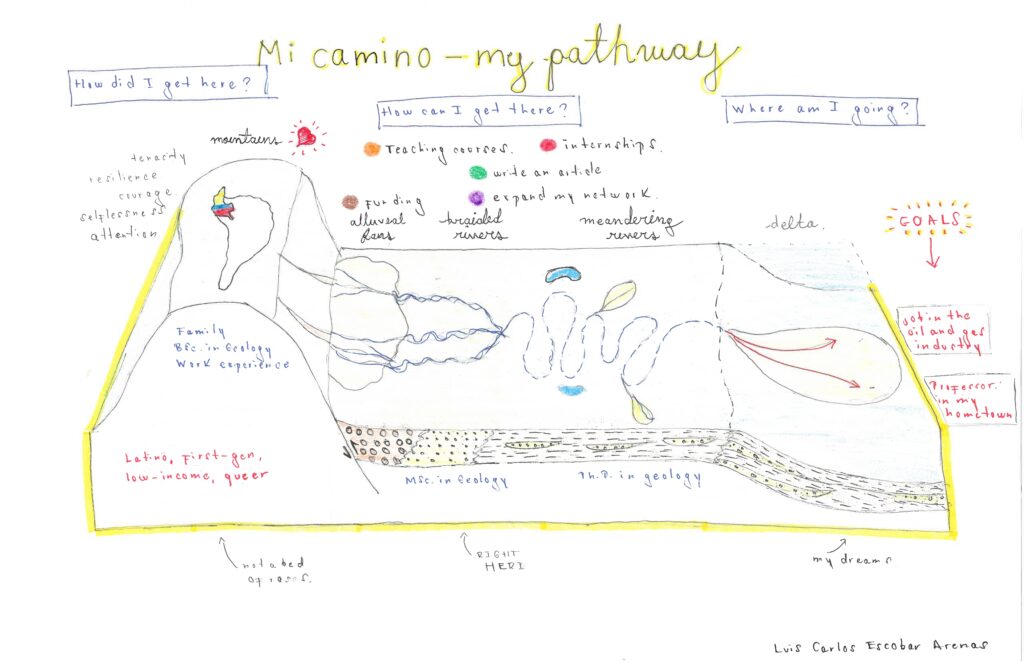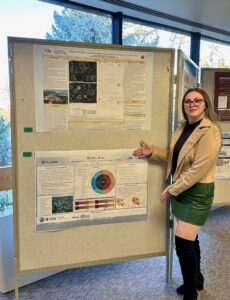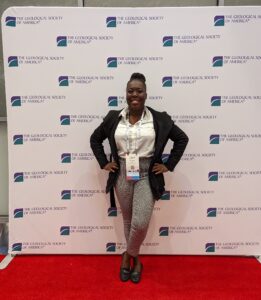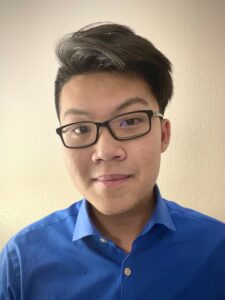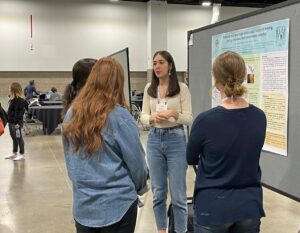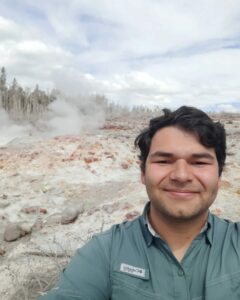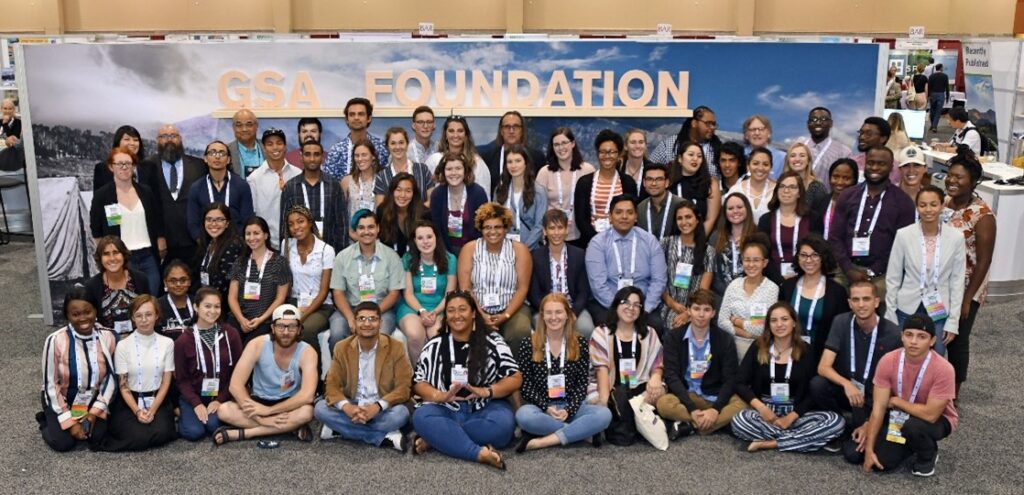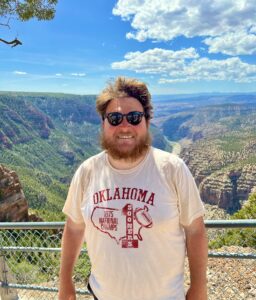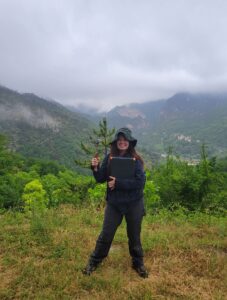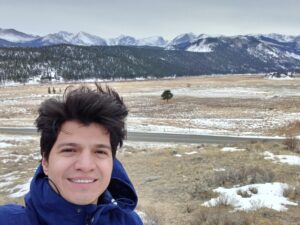 Luis found connection and a chance for organized reflection on his geoscience career path, thanks to OTF.
Luis found connection and a chance for organized reflection on his geoscience career path, thanks to OTF.
What was the most impactful aspect of your OTF experience?
One of the most impactful aspects of my OTF experience was being able to interact for the very first time with other geoscientists with shared intersecting identities since I arrived in the States. Furthermore, as part of the OTF activities, we were assigned to sketch our pathway through geosciences. Since I am a subsurface geologist, I decided to depict my pathway as a long-way sedimentary system, starting from the source area (my hometown, Medellín, Colombia) through alluvial fans, braided and meandering rivers, to reach the sink (my goals) depicted in the channels of a delta. It is awesome how you can see your life reflected through depositional environments and the sedimentary record (at least mine)! Also, I was able to discuss geology in Spanish again with old classmates and new colleagues I met in the meeting.
What do you remember most from GSA 2022?
To be honest, beyond the amazing talks I attended throughout the meeting, the thing I remember the most from GSA 2022 is the new friends I made during the OTF activities and the LGBTQIA+ Social event. I was surprised when I saw so many people at the LGBTQIA+ Social event! After thinking I was alone in the world, getting to know those geoscientists with so many wonderful stories from so many places and backgrounds was revealing. I learned more than I thought during that social event, and that changed the way I see representation, diversity, and inclusion in geosciences. I remember with special affection one colleague from the West Coast I had the chance to talk to more, motivating me to consider more possibilities and expand my horizons currently looking for a Ph.D. program.
What was your mentorship experience like? Would you consider returning to serve as a mentor?
I would say my mentorship experience was really insightful and provided me with perspective about what’s next for me and how I would like to tackle future challenges. As part of the program, I was able to connect with another LGBTQIA+ sedimentologist and subsurface geologist. He provided me with advice about how to adapt to the culture shock as an international student and told me about his experience navigating jobs in the oil & gas industry and landing a position as an associate professor, something I was interested to hear about because it is one of my long-term goals. Furthermore, I reached out to someone from the USGS, another LGBTQIA+ geoscientist, and we talked about how to balance research while trying to build a supportive, diverse and inclusive community as a graduate student with limited time. It was very meaningful for me to hear their stories since it had been difficult, nearly impossible, to find LGBTQIA+ mentors who have also navigated a career in geosciences. GSA Connects 2022 provided me with a platform for finally getting to know them! And of course, I’d be ecstatic to give this back by becoming a mentor for other young geoscientists!
After your OTF experience, how do you see OTF influencing or impacting your future?
The activities we performed as part of the OTF program allowed me to reflect on my career and pathway in a more thorough, organized way. I was able to recognize my strengths and weaknesses and identify what I am missing to make my dreams come true. Furthermore, in the exhibitor’s hall, I found other diversity and inclusion initiatives and funds I applied for. I traveled to one of my top options for pursuing a Ph.D. program for free just one month after the meeting. I could not have found out about that opportunity if I had not gotten the OTF grant to attend GSA Connects 2022; so clearly, this experience is impacting my life both in the short- and long-term, academically and personally.
Why should donors support programs like OTF?
As you can see, I am extremely grateful and feel very flattered to have been chosen to take part in the OTF program. As an international, first-generation, Latino, LGBTQIA+ graduate student in the USA, big conferences like GSA Connects 2022 have been the only way I can get in touch with more geoscientists with intersecting identities. After the conference, I stopped feeling ostracized and realized that, out there, there are tens, hundreds, maybe thousands of geoscientists that are facing the same challenges as me. Your support produces a humungous impact in the communities we belong to by generating the opportunity to build priceless connections, so do not hesitate to donate!

